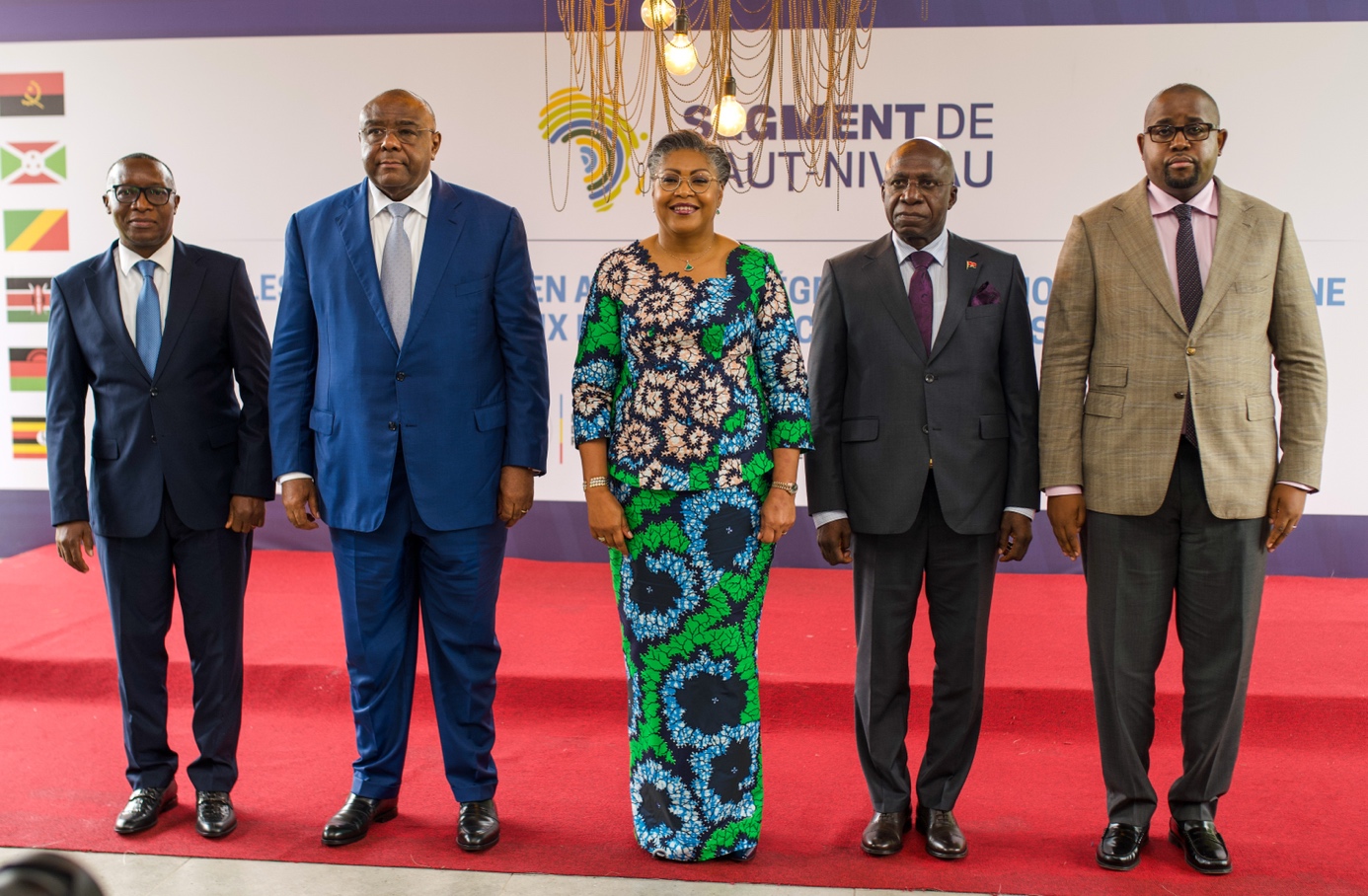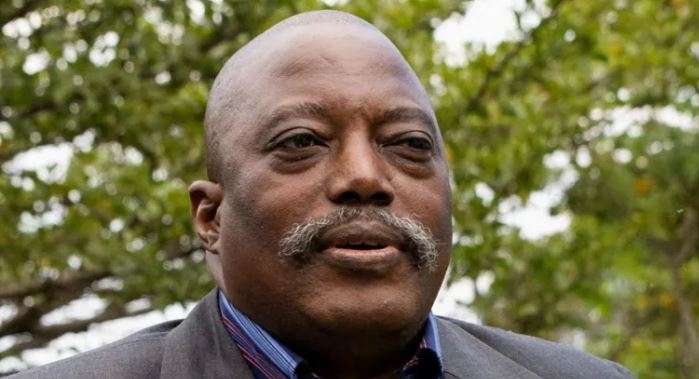
 From left to right: Albert Zeufack, Country Director, World Bank; Jean-Pierre Bemba, Deputy Prime Minister and Minister of Transport of the DRC; Judith Suminwa Tuluka, Prime Minister of the DRC; Tete António, Minister of Foreign Affairs of Angola; Floribert Anzuluni, Minister of Regional Integration./HANDOUT
From left to right: Albert Zeufack, Country Director, World Bank; Jean-Pierre Bemba, Deputy Prime Minister and Minister of Transport of the DRC; Judith Suminwa Tuluka, Prime Minister of the DRC; Tete António, Minister of Foreign Affairs of Angola; Floribert Anzuluni, Minister of Regional Integration./HANDOUT
More than 250 public officials, economic leaders, financial institutions and international partners convened in Kinshasa on Tuesday for a high-level forum dedicated to accelerating regional economic integration within the Great Lakes Region.
The meeting took place on the sidelines of the 9ᵗʰ Ordinary Summit of Heads of State and Government of the International Conference on the Great Lakes Region (ICGLR), reflecting a shared commitment by member states to advance stability and prosperity through coordinated action.
Opening the session, Democratic Republic of Congo Prime Minister Judith Suminwa Tuluka called for a new narrative for the region—one built on “concrete action, sincere cooperation, and shared development.”
She said lasting peace was inseparable from the region’s ability to invest jointly in infrastructure, employment, trade and trust.
Suminwa reaffirmed the DRC’s ambition to serve as an integrating hub at the intersection of several regional economic blocs and to drive continental convergence.
The day’s discussions focused on three flagship infrastructure projects seen as critical to unlocking the economic potential of the Great Lakes Region.
The first is the Lobito Corridor, which links the DRC, Zambia and Angola to the Atlantic and is designed to streamline logistical and mining flows.
The second is the Tanzania-Burundi-DRC railway corridor, a strategic route that would open new access to the Indian Ocean and expand trade opportunities.
The third project, the DRC-Uganda road corridor, aims to transform sensitive border regions into zones of shared economic growth.
Ministers, regional institution heads, development banks, private-sector leaders and international experts stressed the need for stronger coordination among existing regional integration frameworks.
Several speakers urged member states to harmonize policies, avoid institutional overlap and enhance the effectiveness of joint programmes so that they reflect and address the needs of local populations.
Diplomatic exchanges also underscored the central role of regional and international partners—including the African Union, European Union, United Nations and various regional economic communities—in supporting member states toward more coherent and mutually beneficial integration.
Participants agreed that economic diplomacy has become a key instrument for lasting stability, provided it is anchored in cross-border investment incentives, mobility and complementary public-private partnerships
Closing the meeting, Minister of Regional Integration Floribert Anzuluni urged countries not to allow the initiative to become “a mere talk show with no follow-up.”
He pressed for sustained momentum, rigorous monitoring and stronger networks to ensure commitments translate into tangible progress.
Anzuluni also announced the DRC’s intention to institutionalize the gathering and begin preparations for a second edition.
















